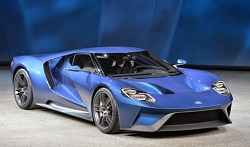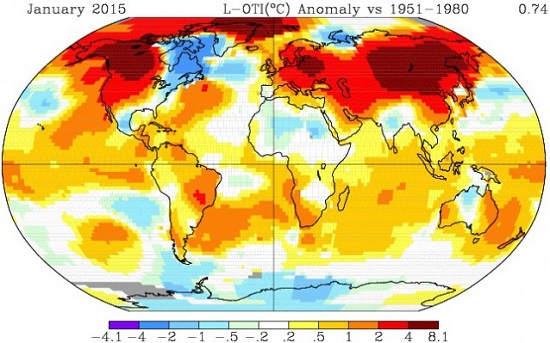My idea of a driverless car is that you can sit back and read a book. In fact it may be more like this:
Tag Archives: car
A ray of sunshine
 A carbon revolution is about to launch itself onto the world. It has nothing to do with carbon emissions, or not much, Carbon Revolution is the name of a company that started in someone’s garage in Geelong about a decade ago. It’s about light-weight carbon fibre wheels for cars. The world-first technology was initially used in Formula One, then in May it won a contract to supply wheels for the Ferrari-fighting Ford GT, the fastest and most expensive Ford supercar ever made. It was a move from the race track to the road.
A carbon revolution is about to launch itself onto the world. It has nothing to do with carbon emissions, or not much, Carbon Revolution is the name of a company that started in someone’s garage in Geelong about a decade ago. It’s about light-weight carbon fibre wheels for cars. The world-first technology was initially used in Formula One, then in May it won a contract to supply wheels for the Ferrari-fighting Ford GT, the fastest and most expensive Ford supercar ever made. It was a move from the race track to the road.
Now the company is raising $50 million to supply lightweight carbon fibre wheels to Ford Motor Company for the $US450,000 ($600,000) Ford GT and $US63,000 Mustang Shelby GT350R sports cars. Continue reading A ray of sunshine
Climate clippings 146
1. Canadian team gets 2,098 mpg in supermileage competition
The average Australian car travels about 15,000 km/yr.
This car would consume only 16.5 litres per year! Continue reading Climate clippings 146
Climate clippings 128
1. Hot and cold
My sister in Toronto tells us how cold it has been. She can’t remember the last time it reached -5°C.
Yet NASA finds that Feb 2014 to Jan 2015 was the hottest 12 months on record. The picture tells the story:

2. Record megadroughts predicted
The American Southwest and the great Plains could experience the worst megadroughts in ancient and modern times.
According to the findings, future droughts in both regions will be more severe than even the hottest, driest megadroughts of the 12th and 13th centuries, which are believed to have contributed to the fall of ancient Native American civilizations that inhabited the Southwest, such as the Pueblo Indians.
Climate Central gives the odds.
The chances of a megadrought (lasting 35 years or longer) are up to 50%.
The odds of a decade-long drought are around 90%.
There’s also a 5-10 percent chance that parts of the region could see a state of “permanent” megadrought lasting 50 years or longer under the highest-warming scenario, a greenhouse gas emissions path we’re currently on.
3. New era of climate action and hope
Christiana Figueres reckons 2015 is going to be a transformational year in climate change action. She of course is the boss-person of the United Nations Framework Convention on Climate Change (UNFCCC) which is sponsoring the Paris talks in December.
Amongst other things she mentions the June Live Earth concerts initiated by Al Gore and Kevin Wall (reviving their 2007 effort) to be held in New York, South Africa, Australia, China, Brazil and Paris.
She also plugs the UNFCCC’s Momentum for Change initiative, including Lighthouse Activities.
4. UK parties in pact on climate change
David Cameron, Nick Clegg and Ed Miliband have agreed to work together to tackle climate change, as they warned it posed a threat to national security and economic prosperity.
In what might be seen as a surprising move in the run-up to the general election, the three party leaders have pledged to work “across party lines” to agree cuts to the UK’s carbon emissions.
They have also signed up to seeking a “fair, strong, legally binding” international climate deal, set to be negotiated in Paris at the end of the year, to limit global temperature rises to below 2C – the level beyond which “dangerous” climate change is expected.
And they pledged to move to a low-carbon economy, ending the use of coal without technology to capture and store its emissions for power generation. (Emphasis added)
Tesla will start production in about six months, all going well.
“We are going to unveil the Tesla home battery, the consumer battery that would be for use in people’s houses or businesses fairly soon.”
“Some will be like the Model S pack: something flat, 5 inches off the wall, wall mounted, with a beautiful cover, an integrated bi-directional inverter, and plug and play.”
Thanks to Geoff Henderson who linked to this one recently at Saturday Salon. Yes, it could indeed be a game changer.
6. Laser ignition to replace spark plugs
A team at Princeton Optronics working on replacing conventional spark plugs with laser igniters has produced a running engine and they claim that replacing spark ignition with lasers could improve the efficiency of gasoline powered engines by 27%. Considering that the basic design of the spark plug hasn’t really changed in over a century, this would be a revolutionary step, frickin’ lasers or not.
Because the spark plug is located on the edge of the combustion chamber, not all of the fuel is combusted. Laser ignition can be directed to the centre of the chamber, or in fact to multiple parts of the chamber in extremely rapid succession. Ignition can also be more accurately timed in relation to the movement of the piston. The result is a more complete burn and greater fuel efficiency.
7. Climate oscillations and the global warming faux pause
Michael Mann posts on research he was conducted, with others, on multidecadal climate oscillations in the Pacific and the Atlantic Oceans. They found that the Pacific dominates and was the predominant cause of a slight slowing in predicted warming over the past decade-and-a-half or so.
It is possible that the downturn in the PMO [Pacific Multidecadal Oscillation] itself reflects a “dynamical response” of the climate to global warming. Indeed, I have suggested this possibility before. But the state-of-the-art climate model simulations analyzed in our current study suggest that this phenomenon is a manifestation of purely random, internal oscillations in the climate system.
This has implications for the future.
Given the pattern of past historical variation, this trend will likely reverse with internal variability, instead adding to anthropogenic warming in the coming decades.
The “false pause” may simply have been a cause for false complacency, when it comes to averting dangerous climate change.
Reminder Climate clippings is an open thread and can be used for exchanging news and views on climate.
Toyota’s fuel cell car
Around 16 years ago Toyota unveiled its hybrid electric-gasoline car. Since then it has sold almost six million of them. Now the company is taking a different direction and will start selling cars powered with a hydrogen fuel cell as soon as 2015. The battery car, they say, could only exist as “a niche toy for [rich] eco-snobs”, but is not suitable for the masses.
The fuel cell car will have a range of over 500 km or perhaps as much as 650 km in range driving, and will be refillable in seconds if you can find a filling station. Germany currently has 15.
The price is given as between five and 10 million yen, or about €37,000 to €74,000. Not cheap, but perhaps cheaper than expected as an initial offering.
On the downside, the car is only 30% efficient compared to 70% for battery electric. Hence masses of renewable energy will be required if the cars are to be environmentally friendly. There is a question as to whether sufficient renewable energy will be available for a mass rollout, but the car is more efficient than a conventional petrol model.
Toyota have devoted 500 engineers to the project, so they are certainly serious. Daimler has been working on the concept for some time and expects to have vehicles on the road in 2017, as does a Ford-Nissan alliance. General Motors, Honda and Hyundai are working together on a fuel cell project, Volkswagen has formed an alliance with Canadian fuel cell producer Ballard so as not to be caught out if the technology takes off. Continue reading Toyota’s fuel cell car
Climate clippings 78
 These posts are intended to share information and ideas about climate change and hence act as an open thread. This post has emphasised adaptation and mitigation, essentially what we need to do to achieve a safe climate.
These posts are intended to share information and ideas about climate change and hence act as an open thread. This post has emphasised adaptation and mitigation, essentially what we need to do to achieve a safe climate.
Comments, about science, observations, impacts, and future predictions are welcome. I do not, however, want a rehash of whether human activity causes climate change.
1. Mining company donations to political parties
Bernard Keane Looked at the astonishing trend in mining company donations to political parties:

Sandi Keane adds some value in her two part series on the cartelisation of the major parties. Bernard wrote:
The sheer scale of mining company generosity illustrates why Tony Abbott remains committed to repealing the carbon pricing package and the mining tax.
Sandi added:
He might also have added that if Abbott wins office on September 14, we will no longer have a democracy but an oligarchy – a government run by powerful mining and media magnates looking for a return on their investment – with George Pell as spiritual adviser. As Keane tweeted recently:
“Australians are a bunch of sheep about to hand themselves over to a pack of wolves”.


